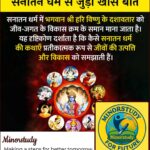7 Inspiring Facts About O.P. Jindal – The Visionary Who Built an Industrial Empire
When we talk about Indian industrialists who rose from humble beginnings to create an empire that changed the nation’s manufacturing landscape, Om Prakash Jindal, fondly called O.P. Jindal, stands tall. Known as the man of steel, he was a self-made entrepreneur, visionary leader, philanthropist, and politician who inspired millions with his determination and hard work.
- History of Om Prakash Jindal
- 7 Inspiring Facts About O.P. Jindal
- 1. From a Bicycle to Billion-Dollar Industries
- 2. Founder of the Jindal Group
- 3. Pioneer of Indigenous Manufacturing
- 4. Political Leader and Reformer
- 5. Philanthropist at Heart
- 6. Visionary in Renewable Energy
- 7. A Family of Leaders
- Timeline of O.P. Jindal’s Life and Achievements
- Significance of O.P. Jindal’s Life
- Observance and Remembrance
- Wishing / Positive Note
- Important Points
- Importance in Our Life
- Importance to Society
- FAQs About O.P. Jindal
- Conclusion & Daily Life Impact
His life story is not just about building factories and wealth—it’s about building a nation’s capabilities, empowering rural India, and leaving a legacy that continues to touch lives.
History of Om Prakash Jindal
O.P. Jindal was born on 7 August 1930 in a small village, Nalwa, in Hisar district of Haryana, India. Coming from a humble agricultural family, he had little formal education and no business background. But he had big dreams and a strong will to achieve them.
As a teenager, Jindal was fascinated by machines and engineering. He started as a small-scale manufacturer in 1952, producing bucket handles in Hisar. With an eye for opportunity and unmatched determination, he began making steel pipes and gradually entered large-scale manufacturing.
By the 1970s and 1980s, he had expanded his business into a group of companies covering steel, power, cement, and infrastructure, eventually forming the Jindal Group.
In addition to his industrial journey, Jindal was deeply involved in public service. He served as a Member of the Haryana Legislative Assembly and later as Power Minister of Haryana, working on rural electrification and development projects.
7 Inspiring Facts About O.P. Jindal
1. From a Bicycle to Billion-Dollar Industries
He began by cycling to nearby markets to sell his manufactured goods. From there, he built one of India’s largest industrial conglomerates.
2. Founder of the Jindal Group
O.P. Jindal established companies like Jindal Steel & Power, JSW Steel, Jindal Stainless, and Jindal Saw—leaders in their respective sectors today.
3. Pioneer of Indigenous Manufacturing
At a time when India relied heavily on imports, he focused on producing world-class products domestically, supporting Make in India before it was even a campaign.
4. Political Leader and Reformer
As Haryana’s Power Minister, he worked to bring electricity to rural areas, understanding that infrastructure is key to development.
5. Philanthropist at Heart
Through the O.P. Jindal Foundation, he promoted education, healthcare, and skill development, especially in rural areas.
6. Visionary in Renewable Energy
Long before the renewable energy boom, he explored ways to integrate sustainability in industrial operations.
7. A Family of Leaders
His wife, Savitri Jindal, and children have continued his legacy, making the Jindal Group a global name.
Timeline of O.P. Jindal’s Life and Achievements
| Year | Event |
|---|---|
| 1930 | Born in Nalwa, Hisar, Haryana. |
| 1952 | Started a small manufacturing unit for bucket handles. |
| 1960s | Expanded into steel pipe manufacturing. |
| 1970s–80s | Established major steel plants; diversified into power and infrastructure. |
| 1990s | Created the Jindal Group’s corporate identity with multiple sectoral companies. |
| 2004 | Appointed Power Minister of Haryana. |
| 2005 | Passed away in a helicopter crash; family continued his legacy. |
Significance of O.P. Jindal’s Life
Industrial Significance: Strengthened India’s manufacturing base, reducing import dependency.
Economic Significance: Generated thousands of jobs and contributed to India’s GDP.
Political Significance: Advocated for rural electrification and infrastructure.
Social Significance: His foundation uplifted countless rural families through education and welfare programs.
Observance and Remembrance
Every year, his birth anniversary is observed by Jindal Group employees, educational institutions, and communities impacted by his work. Events include tree plantation drives, scholarships, health camps, and cultural programs.
Wishing / Positive Note
🌟 May the spirit of O.P. Jindal inspire us all to dream big, work hard, and serve society selflessly. His vision proves that no dream is too big when backed by determination. 🌟
Important Points
Born: 7 August 1930
Founder: Jindal Group
Key Sectors: Steel, Power, Cement, Infrastructure
Political Role: Haryana Power Minister
Death: 31 March 2005 in a helicopter crash
Legacy: Carried forward by Savitri Jindal and his children
Importance in Our Life
O.P. Jindal’s life is a blueprint for personal growth. He shows us that education is valuable, but determination is priceless. His ability to create opportunities, even in challenging conditions, inspires entrepreneurs, students, and leaders alike.
Importance to Society
Employment Generation: His industries provided livelihoods for thousands.
Rural Development: Focused on bringing electricity and infrastructure to villages.
Educational Impact: Established schools, colleges, and training centers.
Women Empowerment: Through his foundation, supported women’s education and self-reliance.
FAQs About O.P. Jindal
Q1: How did O.P. Jindal start his business?
He started by manufacturing bucket handles and later moved into steel pipes.
Q2: What is the Jindal Group known for?
It is known for leadership in steel, power, cement, and infrastructure sectors.
Q3: Was O.P. Jindal involved in politics?
Yes, he served as a legislator and Power Minister of Haryana.
Q4: What caused his death?
He passed away in a helicopter crash in 2005.
Q5: Who continues his legacy today?
His wife, Savitri Jindal, and his children manage the Jindal Group companies.
Conclusion & Daily Life Impact
O.P. Jindal’s journey—from a small village boy to one of India’s top industrialists—is proof that vision, courage, and perseverance can change not just one’s life, but the destiny of an entire community.
In daily life, his philosophy encourages us to embrace challenges, take risks, and never stop learning. His focus on nation-building through industrial growth reminds us that entrepreneurship is not just about profit—it’s about progress.
For society, his work in rural electrification, education, and employment continues to make a difference even after his passing. O.P. Jindal was more than a businessman; he was a builder of dreams, opportunities, and a better India.








